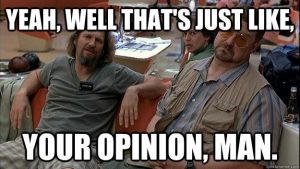 Everybody wants to rank #1 on Google and who can blame them? Google commands 65-85% of the search market, depending on who you ask and what they measure.
Everybody wants to rank #1 on Google and who can blame them? Google commands 65-85% of the search market, depending on who you ask and what they measure.
According to Chitika, a Westborough, MA online advertising agency, the top 10 pages in Google search results earn 91.7 percent of search traffic. The top 3 earn 61.5%.
If you want to rank well on Google, you have to first be eligible to rank. That involves understanding a bit about how Google works and catering to the information wants and needs of your intended audience.
How Google Works
When you type search terms into Google, Google doesn’t search the Internet. It would take too long and people don’t have that much patience. Instead, Google searches its own proprietary index of the Web. If you are not in Google’s index, you might as well be invisible.

There are lots of reasons you might not be in Google’s index.
- Google might not have found you yet.
- Your website might be inaccessible or slow.
- Your content might be blocked from search engines (accidentally or on purpose).
- Google may not be able to navigate, interpret and categorize your content.
- Your website could be banned.
Google May Not Have Found You
If you have a brand new website or a website that no one has ever referenced or linked to before now, Google probably doesn’t know about it.
The quickest way to let Google you have a website is to submit a sitemap. A sitemap is a simple list of your website content. Once you submit a sitemap to search engines, they’ll index your site and notify you of any problems.
Your Website Might Be Inaccessible or Slow

This is more common than you might think. Your website could be down when Google’s indexing programs come to visit. There might be a problem with the network or maintenance could be underway. If your website is inaccessible, Google won’t be able to index your site.
The same holds for true slow sites. Google is every bit as impatient as site visitors. If your site is taking too long to load, Google’s crawlers could abandon the effort and exit before indexing completes.
Your Content Might Be Blocked From Search Engines
Google may have had no difficulty finding or accessing your website, but then been told to ignore it.

It’s common for website developers and bloggers to tag an entire website or portions of its content with a noindex tag while it’s under development. A noindex tag tells Google you’re not ready to be found and would prefer to remain invisible. If you forget to remove the noindex tag, there’s a good chance you won’t get indexed and you won’t show up in search results.
Google Can’t Interpret or Categorize Your Content
Not all websites are made the same. Some are easier to navigate, interpret and categorize than others. It depends on the site structure and the tools and techniques used to built it. Some are easy for Google to understand. Some are impossible.
If your site architecture doesn’t conform to Google’s guidelines and best practices, you might not get indexed. Alternatively, you could get indexed, but incorrectly.
Your Content Might Be Banned
Similar to the prior explanation, if you don’t conform to Google’s guidelines and best practices, you could suffer a penalty or be banned by Google. If your website is banned, you won’t get indexed and you won’t show up in search results.
You Have To Be Relevant
Assuming you satisfy all the criteria above, your website and its content will get indexed. The next hurdle you have to get over is you have to be relevant.

Google is all about speed and relevance. It wants to return the most helpful results to searchers as quickly as possible. If you’re in Google’s index and the words in a search query match the words in your content, you will be considered relevant and eligible to rank.
It also means you should make an effort to understand the information wants and needs of your intended audience. If you know the questions they have when they’re searching for your products and/or services, you can create content to help them. If you know the words they use when they search, you can use it in your content so it will match their search queries.
A Quick Example
If I type “eligible to rank on Google” into Google’s search engine, here’s what I see displayed in search results.

1,560,000 pages in Google’s index all contain the words “eligible to rank on Google”
It’s a bit hard to read, but Google is telling me it found roughly 1.56 million pages in its index that all contain the words “eligible to rank on Google”. That means if I want this article to be one of the 1,560,000 ranking results, I’m going to have to make sure it gets indexed using that language.
A Caveat
Being eligible to rank doesn’t mean you’ll rank highly. It just means you’ll be in the running.
It’s a bit like the Olympics. Being eligible to rank is like qualifying to compete in the Olympics. It doesn’t mean you’ll win a gold medal. It just means you’ll have the opportunity to earn the medal.
Getting indexed and using the “right” language on your website gets you to the starting gate. There is still a whole lot of work that needs to be done before you can actually earn your way to the top.
Does that make sense? If you have any thoughts or questions, please share them in the comments below.
This article was previously published on the author’s blog as What It Means To Be Eligible To Rank on Google.
(270)







